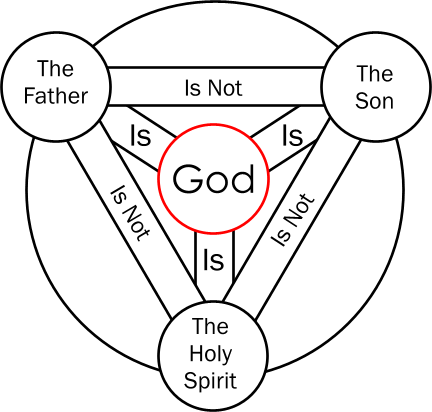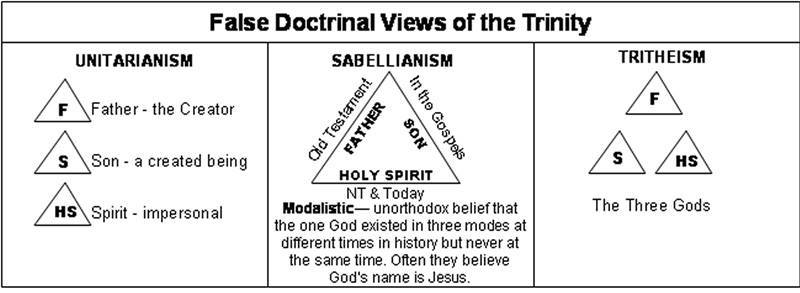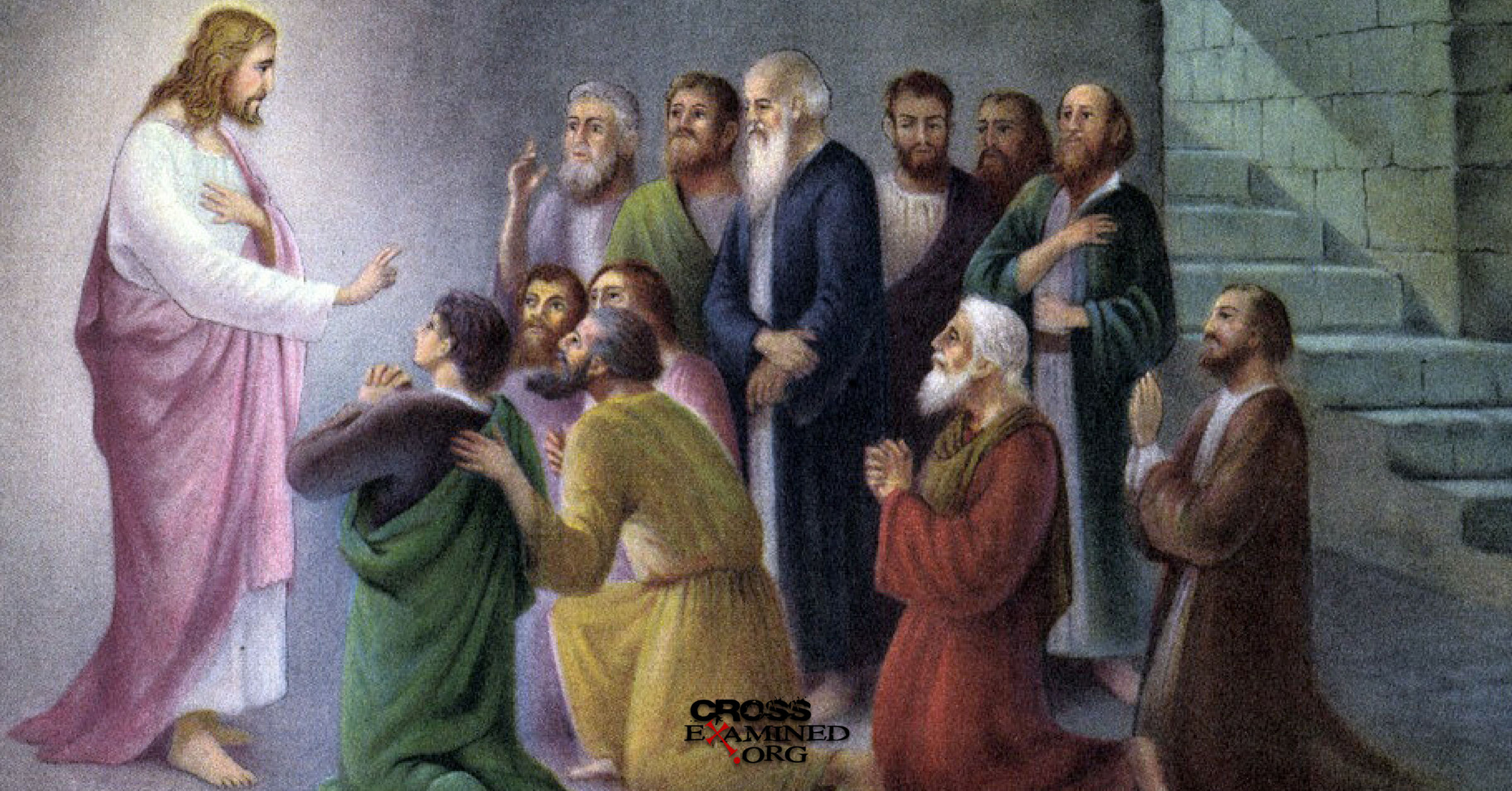by Evan Minton
This is part 6 in a blog post series (and eventually, free Kindle book) on the evidence for Jesus’ resurrection. In parts 3, 4, 5, and 6 we saw that powerful historical evidence exists for the following 5 facts
1: Jesus died by Roman crucifixion.
2: His tomb was found empty by a group of His women followers the following Sunday Morning.
3: The 12 Disciples believed they saw Jesus alive shortly after His death.
4: A church persecutor named Paul converted to Christianity on the basis of what he perceived to be an appearance of the risen Jesus.
5: A skeptic named James converted to Christianity on the basis of what he perceived to be an appearance of the risen Jesus.
These are the 5 facts that are granted by nearly every historian and scholar who studies the subject, even the non-Christian ones (e.g., Ehrman, Ludemann, Sanders). These are the minimal facts. In part 1 of this series, I said that the case for Jesus’ resurrection involved two steps. The first step is figuring out what the facts are, and the second step is discerning what the best explanation of those facts are. We accomplished the first step in parts 3-6 of this blog series. Now we come to the second step; what is the best explanation for the 5 aforementioned facts. Did Jesus rise from the dead? Maybe. But let’s see if there’s any other explanation that can account for them first.
Over the two millennia, skeptics have proposed dozens of naturalistic theories to try to account for the resurrection of Jesus. Let’s look at them and see if any of them work. Keep in mind that any acceptable theory must be able to explain all of the evidence, all of the 5 minimal facts. If it fails to explain all 5 facts, then it will be rejected on the basis of lacking explanatory scope.
Theory 1: The Stolen Body Theory (Disciples Edition)
If you recall from part 4, the enemies of Christianity claimed that the disciples came in the middle of the night and stole Jesus’ body (Matthew 28). Then the disciples went out and proclaimed that Jesus rose from the dead. On this theory, the resurrection is nothing but a hoax, a sham. The disciples do a heckin’ bamboozle on the people.[1] Does this naturalistic theory adequately account for the evidence? I don’t think so.
In fact, this is the WEAKEST naturalistic theory there is. Recall from part 5 that church history is unanimous in that all 12 disciples died horrible, gruesome deaths for proclaiming that Jesus rose from the dead. James, the brother of John, was beheaded by decree of King Herod Agrippa, Peter was crucified upside down, Thomas was speared to death in India, Matthew died by being dragged by a horse, and Phillip was crucified on an X shaped cross.[2] They could have saved themselves simply by recanting, yet they proclaimed the resurrection of Jesus despite agonizing, brutal torture, despite forfeiting their lives. Why would they do that? Why would they die for a lie?
Now, again, when you bring this point up to skeptics, they’ll say “But that doesn’t prove the resurrection is true any more than Muslims giving up their lives in acts of Jihad proves that Islam is true.” And they’re right. I totally agree with them. But, they’re missing the point. I’m not saying the disciples’ martyrdoms prove that Jesus rose from the dead. I’m saying it proves that they believed he rose from the dead. Martyrdom doesn’t prove the disciples were right; it just proves they sincerely believed what they were saying. To put it another way: while people will die for a lie they think is true, no one will die for a lie they know is false.
And that is the fatal flaw is the Stolen Body Theory. It posits that the disciples stole Jesus’ body and deliberately tried to deceive the masses, and then they willingly endured beatings, torture, and executions for preaching what they consciously believed wasn’t true.
The late Charles Colson, who did prison time for being an accomplice in Watergate but who later became a Christian, wrote:
“Watergate involved a conspiracy to cover up, perpetuated by the closest aids to the President of the United States—the most powerful men in America, who were intensely loyal to their president. But one of them, John Dean, turned states evidence, that is, testified against Nixon, as he put it, “to save his own skin”—and he did so only two weeks after informing the president about what was really going on—two weeks! The real cover-up, the lie, could only be held together for two weeks, and then everybody else jumped ship in order to save themselves. Now, the fact is that all that those around the President were facing was an embarrassment, maybe prison. Nobody’s life was at stake. But what about the disciples? Twelve powerless men, peasants really, were facing not just embarrassment or political disgrace, but beatings, stonings, execution. Every single one of the disciples insisted, to their dying breaths, that they had physically seen Jesus bodily raised from the dead. Don’t you think that one of those apostles would have cracked before being beheaded or stoned? That one of them would have made a deal with the authorities? None did.”[3]
As if the unreasonableness of positing that the disciples willingly suffered and died for a lie wasn’t bad enough, this theory has other issues. For one, we’ve seen that Paul and James converted to Christianity because they believed they saw the risen Jesus. This theory cannot account for their conversion experiences.
This theory fails because
1: The disciples died for preaching the resurrection. Liars make poor martyrs.
2: It doesn’t explain why Paul believed he saw Jesus post-crucifixion.
3: It doesn’t explain why James believed he saw Jesus post-crucifixion.
Theory 2: Stolen Body Theory (Other Person Edition)
There’s a variation of the theory above which says while the disciples didn’t steal the body, perhaps someone else came along and stole the body. Then, when the disciples came and found that the tomb was empty, they concluded that Jesus rose from the dead. The disciples aren’t hoaxers; they were just as fooled as the people they preached to.
There are several problems with this theory. First of all, in part 5 of this series, we saw that the disciples believed that they had seen Jesus with their own eyes. They weren’t convinced on the basis of the empty tomb alone, but by seeing Jesus alive and well. Secondly, this theory doesn’t account for the conversion of Paul. Theft of the body is probably the first thing that would have come to Paul’s mind. We saw in chapter 4 that Paul went from Christian Persecutor to Christian Missionary because he, like the disciples, believed he saw Jesus appear to him. James likewise went from skepticism to belief on the basis of a postmortem appearance.
This variation of the stolen body theory cannot account for any of the postmortem appearances. The only minimal fact that it can adequately explain is the empty tomb, nothing else.
Finally, this theory is implausible on its face. Who exactly would have had a motivation to steal Jesus’ body anyway? The Pharisees wouldn’t have stolen Jesus’ body. They were well aware that removal of the body might create an appearance of resurrection, which is what they feared, which is why they had guards placed at the tomb (Matthew 27-28). The Romans don’t appear to have any motivation to take Jesus’ body out of the tomb. And we already know the disciples wouldn’t have stolen the body. If they did, they would have known the resurrection was a lie, and people don’t die for what they know is a lie. Who exactly is supposed to be the culprit here?
This theory fails because
1: The disciples were convinced on the basis of a postmortem appearance.
2: Paul was convinced on the basis of a postmortem appearance.
3: James was convinced on the basis of a postmortem appearance.
4: There’s no plausible candidate for corpse thievery.
Theory 3: Hallucination Theory
In parts 5 and 6, we saw that the disciples, Paul, and James, believed that they saw the risen Jesus. They truly believed the risen Jesus appeared to them. Skeptical scholars have tried to explain this belief in the appearances as a result of hallucination. Perhaps they all hallucinated the risen Jesus.
Ask any psychologist you come across and they’ll tell you that hallucinations are occurrences that happen in the minds of individuals. They’re like dreams in this way. Imagine a group of your friends came up to you one day and said: “Boy, we all had one nice dream last night, didn’t we?” You would probably think that they were pulling a practical joke on you. You would never take seriously their claim that they all simultaneously had the exact same dream. This is because dreams are individual occurrences. By the very nature of the case, they cannot be shared experiences. Hallucinations are the same way.
Now, the extremely early creed that I told you about in part 5 of this series tells us that Jesus appeared to several groups of people. He appeared to all of the original disciples, then to James, then 500 individuals at the same time, and finally to Paul. Do you honestly expect me to believe that they all hallucinated? They all had the exact same hallucination!? Impossible! It’s impossible for 500 individuals to have the same hallucination at exactly the same time. This would be just as likely as the entire city of New York having the same dream on the same night! But not only did Jesus appear to 500 people at the same time, but he also appeared to multiple groups on different occasions. Do you expect me to believe that multiple groups of people on multiple different occasions all had the exact same hallucination?
Lee Strobel, during his investigation of the historical evidence for Jesus’ resurrection, asked a medical expert on the possibility of 500 people hallucinating the risen Jesus. This expert said that for a group of 500 people to witness the exact same hallucination of a raised Jesus would “be a bigger miracle than the resurrection itself!”[4]
Moreover, not only are group hallucinations statistically impossible, but hallucinations of any kind are uncommon. Hallucinations are usually induced by sleep deprivation, drugs, a high fever, or mental instability. If none of these 3 factors are present, it’s highly unlikely that you’re going to have a hallucination. As far as we know, none of the disciples, Paul, or James were insomniacs, sick, or druggies.
In their book “The Case For The Resurrection Of Jesus”[5], Gary Habermas and Mike Licona tell of Navy Seals who were enduring through Hell week. At one point, the seals reported starting having hallucinations one night while they were paddling in a raft at night. They all hallucinated at the same time, BUT they did not have the same hallucination. They had different hallucinations. One of them said he saw an octopus come out of the water and wave at him. Another said he saw a train coming towards them on the water. Another said he saw a wall that they would crash into if they persisted in paddling. When the octopus, the train, and the wall were pointed out to the rest of the group, no one saw any of the things except the one who pointed the thing out. They were all hallucinating, but they were having different hallucinations. So, even if on the off chance, all of the disciples, Paul, and James were in the frame of mind to hallucinate, it’s still unlikely that they’d have the same hallucination. Like the Navy Seals, they’d likely all have different hallucinations, perhaps only one of them being Jesus.
Moreover, even if the impossible did occur, and the minds of all these different groups of people produced hallucinations of Jesus, that would still leave the empty tomb unaccounted for. What happened to Jesus’ body? Why is it gone?
This theory fails because
1: Jesus appeared to The Twelve Disciples, Paul, James, and 500 individuals. There were multiple group appearances. It is statistically impossible that all of these people would have the exact same hallucination, even if they were in the frame of mind to hallucinate.
2: It doesn’t account for the empty tomb.
Theory 4: Group Think
Some skeptics have considered that perhaps the disciples were so in anticipation of Jesus’ return from the dead that they talked themselves into believing that He rose from the dead. One day they went to the tomb and John was like “Peter, I think I see Jesus, over there! Do you see him?” and Peter was like “Oh, yeah! I think I see him too!” and they kind of talked themselves into it. Well, this couldn’t be the case either. Why? Because you have to be in anticipation that you’re going to experience something like that. You have to be primed for it. They weren’t! There are four reasons why the groupthink theory is untenable.
1: Jesus died. Jews weren’t expecting a dying messiah, but a messiah who would be a conquering warrior king, one who would throw off the yoke of Rome.[6]
2: According to the Old Testament (which Jews call the “Tanakh”), anyone hung on a tree was under God’s curse. This is mentioned in Deuteronomy 21:23. Since Roman crosses were made out of wood, they were technically trees, so people would often times speak of the crucified as “being hung on a tree.” And since this was in the minds of Jews, the way in which Jesus died would have only served to convince the disciples that Caiaphas and the others were right in condemning Jesus as a blasphemer and a heretic.
3: Given what the Jews believed about the bodily resurrection, no one would have been anticipating Jesus’ return. Jews believed that all people would rise from the dead at the end of the world, but they never expected any isolated person to get out of their grave right smack dab in the middle of human history.
4: And if that weren’t enough, consider that some of the people who experienced a sighting of Jesus were skeptics… such as James the half-brother of Jesus. We know based on the historical evidence cited in the previous blog post that James did not believe in Jesus during Jesus’ lifetime Saul Of Tarsus was killing Christians because he considered them to be the worst of heretics! He experienced a sighting of Jesus risen from the dead, and he became The Apostle Paul. These former skeptics were not in any way living in anticipation of Jesus’ return.
As you can see, the disciples were not in the expectation that Jesus would rise from the dead. In fact, they had every predisposition to the contrary. And yet, they all believed they saw Jesus alive after His death!
Theory 5: The Swoon Theory
Some skeptics have tried to adequately account for the 5 minimal facts by saying that maybe Jesus didn’t really die in the first place. Maybe he merely fainted on the cross and then the cool, damp air of the tomb sort of roused him around into consciousness. Jesus then left the tomb, came to his disciples and presented Himself to them. Since they presumed he was dead, it’s only natural that they should infer that Jesus came back to life, right? So, we don’t have a miraculous resurrection, simply a fortuitous resuscitation. This would explain the empty tomb and the postmortem appearances. This theory is known in the literature as “The Swoon Theory,” and there are several problems with it.
The following descriptions are very graphic; reader’s discretion is advised.
First of all, given the nature of pre-crucifixion scourging, and of the crucifixion itself, it is extremely unlikely that a crucifixion victim could walk away alive.
When a to-be-crucified person was scourged, they would be given 40 lashes. History tells us that the Roman 40 lashes were from a whip of braided leather thongs, with metal balls, broken pieces of sheep bone, broken glass, and basically anything sharp that would cut a person. These sharp pieces of sheep bone, metal, and broken glass were woven into the braided leather thongs. When the whip would strike the flesh, these would cause deep bruises, and the flesh would be cut severely. You can easily imagine how shredded a person’s back would be after being cut in 40 different places with multiple blades!
According to Dr. Alexander Methrell, the cuts and force of the beating could shred the back so much that the spine of the victim was sometimes exposed![7] The whipping would have gone all the way down the shoulders to the back, and the back of the legs. One physician who has studied Roman beatings said: “As the flogging continued the lacerations would tear into the underlying skeletal muscles and produce quivering ribbons of bleeding flesh.”[8]
Eusebius, a third-century historian, described scourging with the following words: “The sufferer’s veins were laid bare, and the very muscles, sinews, and bowels of the victim were open to exposure.”
The pre-crucifixion scourging was so horrific that the white of the spine was sometimes exposed (according to both Dr. Alexander Methrell and The Journal Of American Medical Association, March edition from 1986), and that the condemned victim’s veins, muscles, sinews, and bowels would become visible from the outside! This is the type of horrific beating that Jesus endured!
The result of such a hellish beating would mean that Jesus would very likely go into Hypovolemic shock.[9] Hypovolemic shock is caused by severe blood loss. It causes four symptoms to occur. First, the heart races in a desperate attempt to replace all the blood that was lost, second, the blood pressure plummets bringing about fainting or collapsing, third, urine production in the kidneys comes to an end to preserve what little liquid is left in the body, and fourth, the person has an overwhelming thirst come over them.
When you read the gospel accounts of Jesus’ execution, these symptoms are evident in Jesus. At one point, Jesus falls while carrying his cross, and Simon of Cyrene is forced to help Jesus carry his cross the rest of the way. Later, when Jesus was on the cross, He said “I thirst,” and then a Roman soldier dipped a sponge in vinegar and stuck it up to Jesus’ mouth for him to drink (see John 19:28-29). Jesus was in critical condition even before He was crucified!
Jesus then carried His cross to the site of the crucifixion, and the Romans nailed Him to it.
Now, how does crucifixion kill its victims? Scientific experiments have been done on volunteers to test what the effects of hanging on a cross would have. These were controlled circumstances, so there was no real danger of these people being harmed. While these volunteers were hanging on the cross, they would mention having difficulty breathing. They would have to push up and down in order to breathe. Eventually, they’d get too exhausted to push up and down anymore, so the scientist would take the person down off the cross at the volunteer’s request.
What these experiments showed was that crucifixion victim die from suffocation. Once Jesus was hanging vertically, the weight of his body and the position of his arms put great stress on the diaphragm, and would put his chest in an inhaled position. So in order to exhale, Jesus would have had to push up on his feet and take a breath, but each time he did this he’d be pushing on the nail in his feet tearing the muscle until it locked against the tarsal bones in his feet (not to mention he’d be scraping his back against the coarse wood of the cross). Finally, with the pressure on his chest eased he’d be able to exhale. He would push up to exhale and then come back down to inhale. Then go up to exhale, and then come back down to inhale. Over, and over, and over. But eventually, exhaustion would take over, and he could no longer push himself up to breathe. He would just sag there and die of asphyxiation. The Roman soldiers would have noticed when a person was dead once he stopped pushing up. And look, you can’t fake the inability to breathe for very long.
In fact, when the Romans wanted to speed up death, they’d break the legs of the people on the crosses with a massive club. Then they wouldn’t be able to push up to breathe, and death would come quickly. However, they didn’t do this to Jesus because they saw that He was already dead, but just to make sure, they drove a spear through him. It punctured both his heart and his lung. The gospel of John tells us that when he did that, blood and water gushed out (John 19:34). This single fact proves that not only was Jesus dead, but it also tells us what He died of; heart failure, due to shock and constriction of the heart detected by the presence of fluid in the pericardium. In this instance, the heart has ceased beating. This brought about an accumulation of fluid in Jesus’ heart, which is called “pericardial effusion.” In addition to this, it also brought about a collection of fluid in the lungs, which is called “pleural effusion.” These two fluids cannot be present if the person’s heart is still beating.
By the way, for those who want to doubt John’s description of the blood and water, I have this to say to you: we have excellent reason to believe that John is telling the truth here. For one thing, John was an uneducated fisherman. Do you think he would know about “pericardial effusion” and “pleural effusion”? Of course not! While anyone would expect to see a pierced body gush blood, not many even today would expect clear fluid to come out. Yet, that’s exactly what occurs in the case of heart failure due to shock and constriction of the heart. I didn’t even know about this phenomenon until I read about it in Lee Strobel’s The Case For Christ. Moreover, this isn’t something John is likely to make up either. Given his lack of medical knowledge, having water come out of Jesus’ side would make as much sense to him as having Skittles pour out. So, despite being mentioned in only one source, we still have reason to believe this description is true.
This theory fails because:
It was impossible for Jesus to survive this whole ordeal.
1: Jesus was in hypovolemic shock from the pre-crucifixion scourging alone! Jesus was in critical condition even on his way to the cross (hypovolemic shock), so he would have bled out quickly.
2: But if bleeding out didn’t kill him, He would have eventually died of suffocation.
3: If neither of those two things got him, we can be sure Jesus’ was dead because (A) you can’t survive a spear jab to the heart and (B) that spear jab revealed Jesus’ heart and lungs collected pericardial effusion and pleural effusion, which isn’t possible if the heart is still beating.
Theory 6: The Wrong Tomb Theory
There’s another theory that states that on that first Easter morning, the women went down to the wrong tomb and concluded based on that that Jesus had risen from the dead. The whole thing was really a simple misunderstanding! Jesus’ tomb wasn’t empty! They just went to the wrong tomb. This tomb never had a body in it at all.
There are a quite a few problems with this view. First off, I think the burial story in the gospels is historically reliable. Number 1: It’s multiply attested in all four gospel sources plus the 1 Corinthians 15 creed. And number 2: It’s unlikely to be a Christian invention. The gospel authors were unlikely to make up a member of the very group who had Jesus killed and then portray him as the one to give Jesus an honorable burial while all of the disciples (except John) abandon Jesus in his final hours in order to cower in their homes for fear of the Jews. So by the principle of embarrassment, I conclude that the burial story is reliable, but in this case, that means that the tomb of Jesus was known to both Christian and non-Christian alike. As a result, it’s very unlikely that anybody would have accidentally gone to an unused tomb, thinking it was Jesus’ tomb.
The Wrong Tomb Theory expects us to believe that everyone who would have been interested in the tomb totally forgot where it was! Not only did the women go to the wrong tomb, but later John and Peter went to the wrong tomb, and then the Pharisees also went to the wrong tomb, followed by the Romans who also went to the wrong tomb, and of course Joseph of Arimathea went to the wrong tomb. He must have forgotten where the tomb that he himself owned was located.
This is beyond implausible. But even more, devastating to the theory is that it doesn’t explain the beliefs of the disciples, James, or Paul that they had seen the risen Jesus. We’ve already seen in parts 5 and 6 that there’s good evidence that the disciples, James, and Paul believed that they saw the risen Jesus appear to them!
This theory fails because;
1: Tomb’s location was well known. Extremely unlikely everyone interested in the tomb forgot where it was.
2: The disciples didn’t believe because the tomb was empty, but because they believed Jesus appeared to them.
3: Paul was convinced on the basis of an appearance.
4: James was convinced on the basis of an appearance.
Theory 7: The Legend Theory
Could the resurrection have been a legend? No. Why? Because, as we saw in part 5 of this blog post series, we can trace the claims of the resurrection to the lips of the original disciples! In Paul’s letters, he says he had access to the original disciples and had fellowshipped with them. I’m sure Peter told Paul whether or not he had seen Jesus when he visited them in Galatians 1 and 2. And of course, the creedal tradition dates to within five years after the death of Jesus (as argued in part 5 of this series, it’s likely he got the creed from Peter and James when he visited them three years after his conversion), this is well within the lifetimes of the twelve disciples who could have corrected this oral tradition if He really hadn’t appeared to them. Moreover, the early church fathers Tertullian and Irenaeus attest that the church fathers Polycarp and Clement were students of the apostle John and that they knew several other apostles as well. This is significant because Polycarp and Clement said that the original disciples were claiming that Jesus rose from the dead and appeared to them. Since they knew and fellowshipped with Jesus’ twelve disciples, they would certainly be in the position to know what the disciples believed.
The above comprise nine ancient sources that attest to the original disciples’ claims to have seen Jesus. And with the seven independent sources that attest to their martyrdom, we can conclude that they didn’t just merely claim that Jesus appeared to them, they really believed it.
We saw earlier in this series that the 1 Corinthians 15 creed dates to within five years after the crucifixion! A.N Sherwin White of Oxford University did a study of the rates at which legend develops in the ancient world, and he discovered that two generations weren’t even enough time for legend to build up and eliminate a core of historical truth.[10] But we don’t have two generations of time here; we don’t even have an entire decade! We only have five years!
Theory 8: The Pauline Conversion Disorder Theory
This theory is one I found out about in Habermas and Licona’s “The Case For The Resurrection Of Jesus,” and this theory argues that Paul’s conversion from skepticism was a result of conversion disorder. Conversion Disorder is a neurological malfunction that occurs whenever a major change comes into someone’s life. Habermas and Licona write: “Let us suppose that the year is 1968. A young American named Rick has been drafted into the U.S. Army for a tour in Vietnam. Shortly after he receives his letter from the Department of Defense, Rick begins to feel a sharp pain all the way down his right leg. The pain worsens, and by the time he goes for his military physical, he is limping severely. In this case, Rick is not faking the pain in order to get out of going to Vietnam. He may have conversion disorder. Typical symptoms of conversion disorder are blindness, paralysis, loss of voice, pain, uncontrolled vomiting, tics, and seizures.”[11]
All of these are temporary of course, as conversion disorder does not last forever. Could Paul have experienced something like this? He experienced temporary blindness at the moment he saw a bright light and thought he saw Jesus (see Acts 9). Could Paul have experienced a neurological malfunction?
This theory is plagued with problems. Not the least of which is that it only addresses Paul’s conversion and nothing else. It doesn’t explain the empty tomb, the appearance to the disciples, or the appearance to James. The resurrection hypothesis explains all of these.
But moreover, Paul is unlikely to have experienced conversion disorder anyway. According to the Diagnostic and Statistical Manual of Mental Disorders: DSM-IV, women are more likely to have conversion disorder than men by as much as a 5-1 ratio. Adolescents, military combatants, and those with a low IQ are also more likely to experience the disorder. Paul doesn’t fall into any of these categories. Paul is not a woman, teenager, warrior, or dummy. This doesn’t mean he couldn’t have experienced the disorder. It just means it’s unlikely. However, when you look at the other problems associated with The Pauline Conversion Disorder theory, it makes it even more unlikely.
Not only must we employ conversion disorder to explain Paul’s experience, but we must also say that Paul experienced an auditory hallucination, as well as a Messiah Complex. Why? Because Paul not only saw a bright light and went blind, but he also heard a voice that told Him to spread the gospel message. Now, it is possible to find people who have experienced conversion disorder, people who have had auditory hallucinations, as well as people who have a messiah complex, but it’s extremely rare to find people who have simultaneously experienced all 3.
This theory fails because
1: It has an inadequate explanatory scope. At best, it gives a natural explanation for Paul’s conversion. But it doesn’t account for the postmortem appearances to the disciples or James.
2: Paul isn’t a likely candidate for conversion disorder.
3: It’s extremely rare to find someone who has conversion disorder, has experienced an audible hallucination and has a messiah complex all at the exact same moment.
Theory 9: The Twin Theory
This theory says that Jesus had an unknown identical twin brother who saw Jesus hanging on the cross one day and decided to prank the disciples by stealing the body, hiding it somewhere, and then appearing before the disciples telling them that He was the risen Lord.
This theory is kind of silly, to be frank… Turek. It’s obviously ad-hoc as there’s no reason to believe it other than a desire to avoid declaring with the Christians “He is risen!”. Aside from the blatant ad-hoc nature of this hypothesis, it has several problems.
For one thing, are we expected to believe that no one was smart enough to figure out that this person was not Jesus? The twin would not have known the disciples very well. As a result of that, he would not have been able to copy Jesus’ mannerisms and personality. The disciples would very likely have gotten suspicious. “Jesus, you okay? You’re not acting like yourself”. Moreover, the twin would not have been able to walk through walls, nor could the twin have been able to ascend to Heaven.
Theory 10: The Alien Theory
And now for the alien theory. When I first heard of this theory, I literally burst out laughing. This theory simply shows the desperate lengths people will go to in order to avoid declaring Jesus Christ is Lord. The Alien Theory suggests that Jesus was really an alien from outer space and that Jesus was able to do things that were natural for him, but that seemed supernatural for everyone else around him. Jesus’ special alien powers are what caused him to heal from his crucifixion wounds and appear before the disciples.
1: We have absolutely no evidence that aliens even exist.
Astronomers have not yet located a planet that can sustain life other than our own. Even if we did discover life forms on other planets, it’s still unlikely that they would have the exact same abilities that Jesus has in The Bible.
2: The amount of time spent by the Jesus alien convincing people that he was their Messiah is absurd.
What alien would spend three years just to pull a prank on some unsuspecting Earthlings? Three years? This is like the longest episode of Punk’d ever! Do you honestly expect me to believe that this Jesus Alien would waste three years of his life fooling these Earthlings into thinking that He was their promised Messiah? Why not just put some whoopee cushions under peoples’ seats, or put some fake snakes in peoples’ cabinets? Why such a long-lasting prank? I know of no prankster who is that dedicated to his hoaxes.
3: There is no motivation for the Jesus alien to endure the suffering of being scourged and crucified.
Forget the fact that there’s absolutely no evidence to support this theory at all, what I’m wondering is why this alien would go through all the trouble in convincing a bunch of Earthlings that he was the messiah of their Jewish religion and then end up being tortured horribly for such a scam. Jesus is either the intelligent designer or a stupid alien. He had many chances to escape his horrible fate, such as when Caiaphas asked him point blank “Are you the messiah? Son of the living God?” By then he should have known he was in deep doo-doo. He should have said “Me? Messiah? No no no no no.” and then he would take off running, be beamed up to his spaceship and got the heck outta dodge. But no, instead, he dug his grave even further by saying “I am and you will see the Son of Man seated at the right hand of the Father and coming with the clouds of Heaven.” Again, liars make bad martyrs…even if that liar is an alien.
Part of me can’t help but wonder if this theory was posed as a joke. I only addressed it because I wanted to cover all the bases.
The Best Explanation: He Is Risen!
In his book “Justifying Historical Descriptions,” CB McCullagh[12] puts forth several criteria which historians use for assessing historical theories. These criteria are (1) explanatory scope, (2) explanatory power, (3) plausibility, (4) not being ad hoc/contrived, (5) being in agreement with established beliefs, and (6) outstripping its’ rival theories. The “He Is Risen” hypothesis passes every single one of these tests with flying colors. The same cannot be said about the various naturalistic theories we looked at.
Explanatory Scope: It explains why the body of Jesus was not in His tomb, why hundreds of people on different occasions believed they saw Jesus alive after His crucifixion, and it also explains the conversion of the church persecutor Saul Of Tarsus (i.e., Paul). It also explains the conversion of the skeptic James. It explains every single piece of data that requires an explanation. The best of the naturalistic theories explain only one minimal fact at most. But the majority don’t even explain that many.
Explanatory Power: It explains why the tomb of Jesus was vacant, why folks kept seeing Jesus alive on numerous occasions, in spite of the fact that He was killed days before on a Roman cross.
Plausibility: Given the background of Jesus’ life and claims, the resurrection is an authentication of those claims.
Ad Hoc: You know a theory is ad hoc if it requires the making of quite a few other theories to save itself from being proven to be erroneous. The resurrection hypothesis is not that kind of explanation. It only requires the subsequent declaration to be true: it is possible that God exists.
In accord with accepted beliefs: I can hear the voice of the skeptic now screaming “People who die stay dead, stupid! Science has proven that dead people don’t come back to life!”, This is not a valid objection. The hypothesis isn’t that Jesus rose from the dead by natural causes, but that God raised Jesus from the dead via a miracle. This does not conflict with the conventional belief that people cannot and do not rise from the dead, naturally.
Outstripping Rival Theories: We’ve seen that none of the naturalistic theories can adequately explain all of the data. Only the resurrection hypothesis succeeds in criteria 1-4 above, and should, therefore, be preferred.
The best explanation of the five minimal facts is that “He Is Risen”!
There are no naturalistic theories that can explain the 5 minimal facts. The only theory that can explain all of them is a supernaturalistic theory.
Notes
[1] It appears that I’ve been looking at too many doggo and pupper memes.
[2] To see some of the sources reporting these, check out part 5 of this blog post series.
[3] Charles Colson, “An Unholy Hoax? The Authenticity of Christ,” BreakPoint syndicated column 020329, (29 March 2002).
[4] Strobel, Lee. 1997. God’s Outrageous Claims: Discover What They Mean for You. p. 215, Zondervan
[5] Gary Habermas, Michael Licona, “The Case For The Resurrection Of Jesus,” pages 105-106, Kregel
[6] The Jews of the first century got their prophecies mixed up. Jesus will indeed get rid of all the evil in the world, He will overthrow Israel’s oppressors, but He’ll do this in His second coming. In His first coming, He was to be an atoning sacrifice for our sins (1 John 2:2 cf. Isaiah 53).
[7]See Dr. Alexander Methrell’s interview with Lee Strobel in “The Case For Christ,” chapter 11, page 195, published by Zondervan
[8] Lumpkin R: The physical suffering of Christ. J Med. Assoc Ala 1978,47:8-10,47.
[9] No, I’m not a trained medical professional. I’m getting all of this information primarily from three sources; Doctor Alexander Methrell, from his interview with Lee Strobel in The Case For Christ, the 1986 edition of The Journal Of American Medical Assosiation, and the documentary “Crucifixion” which I saw on The History Channel a few Good Fridays ago. While I’m not an expert in this field, I’m drawing on the expertise of those who are, so don’t try to argue with me ad hominem.
[10] A. N. Sherwin-White, Roman Society and Roman Law in the New Testament (Oxford: Clarendon Press, 1963), pp. 188-91.
[11] Habermas, Gary R.; Licona, Michael R.. The Case for the Resurrection of Jesus (p. 113). Kregel Publications. Kindle Edition.
[12] C. Behan McCullagh, Justifying Historical Descriptions (Cambridge: Cambridge University Press, 1984), p. 19.
Original Blog Source: http://bit.ly/2KE8GHW













